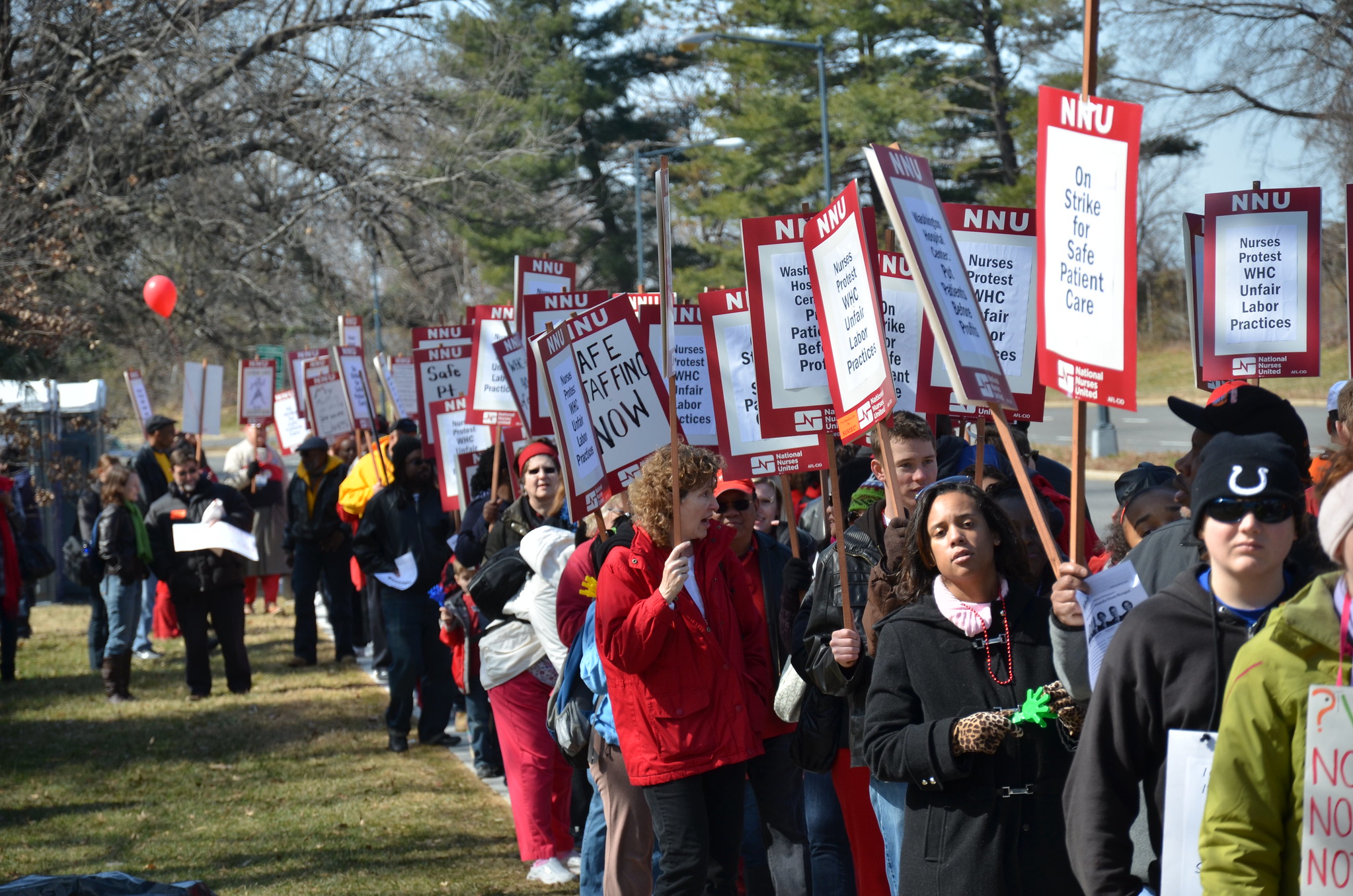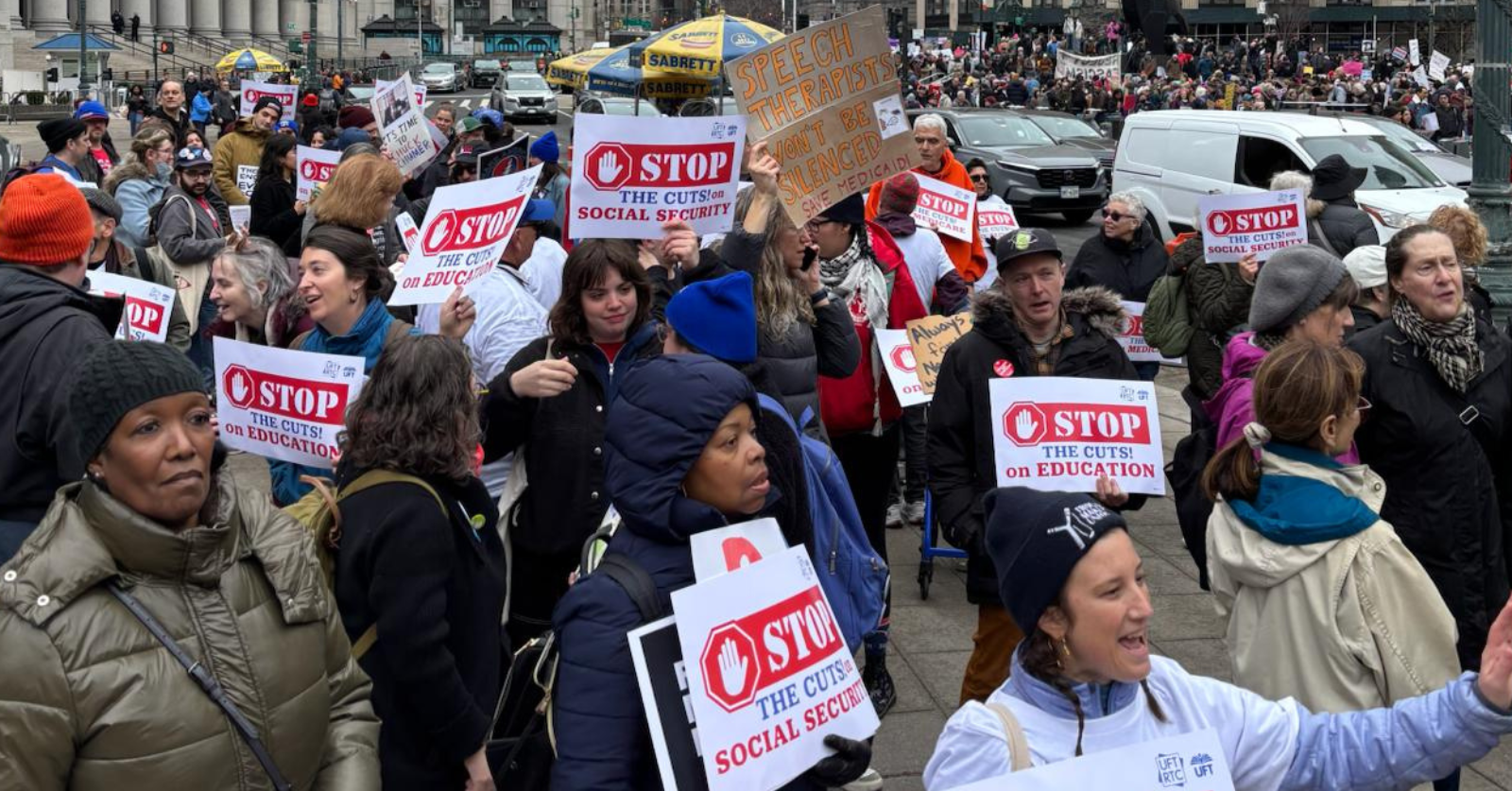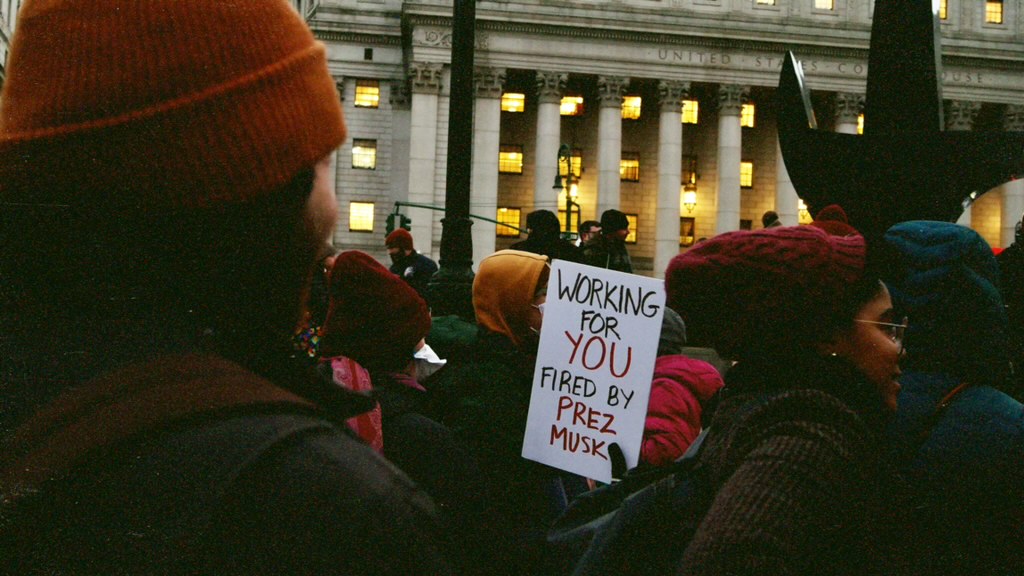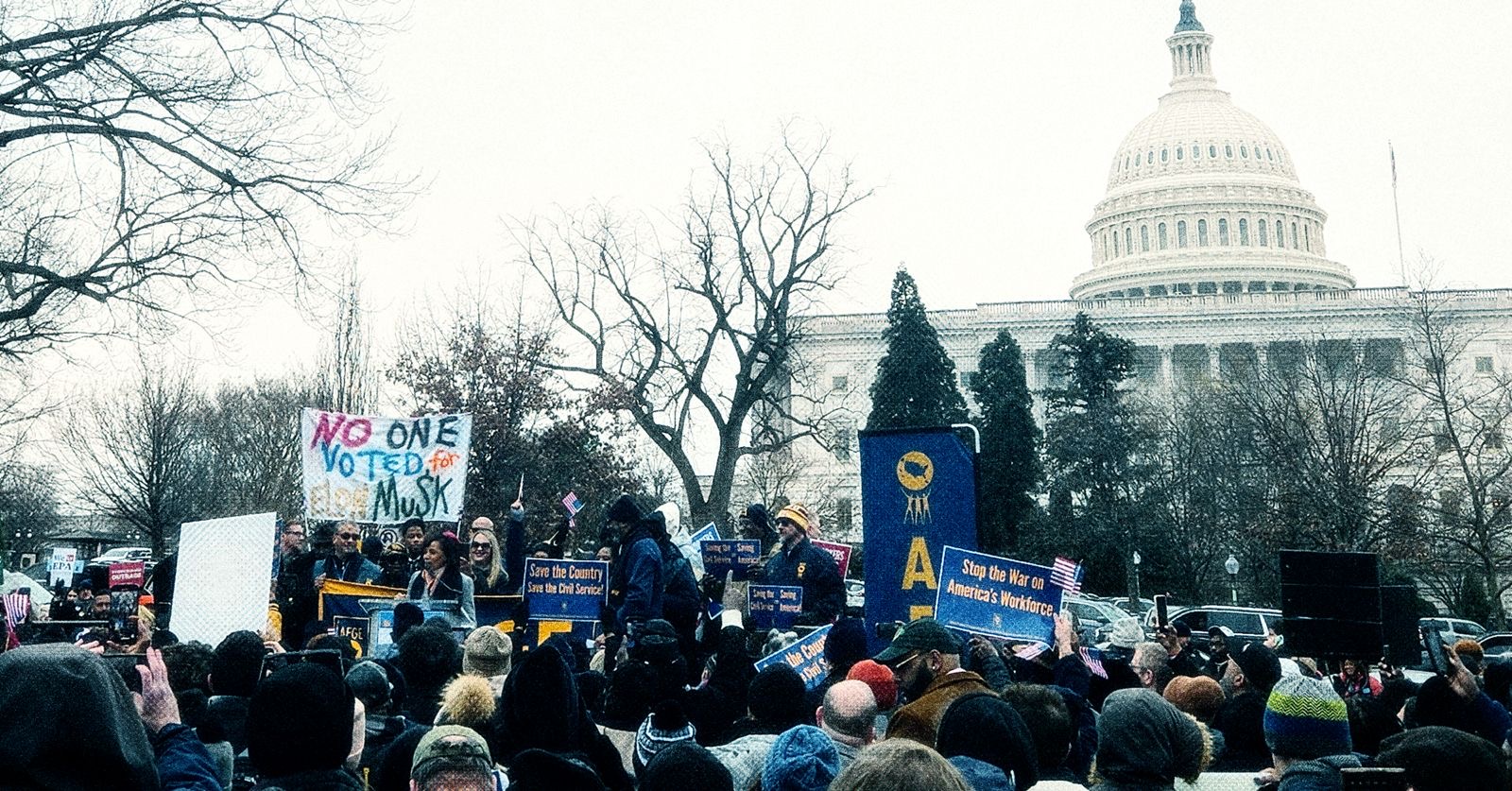Three years ago, I decided to go back to school so I could get a union job as a nurse.
I first graduated from college about a decade ago with a degree in English, and then spent the following years flitting from jobs ranging from publishing, child care, nonprofit admin, bartender, personal assistant, dog walking, and even began down the path of academia. For the most part, it all felt deeply unsatisfying. Do you have those moments at work where you just look around — at your computer with 20 tabs open; at your coworker’s zombie face staring at their computer’s 20 tabs; at the angelic sleeping baby you’re caring for that makes you think about how, with this job trajectory, you won’t be able to afford kids of your own let alone their childcare; at the grant you’re writing asking ultra-wealthy people and foundations for a few pennies to do a project that won’t have systemic consequences and whose issues are likely rooted in that very same wealthy person’s wealth accumulation; at the To Do list of items that feel so urgent but at the end of the day don’t really matter — and just think, what are we doing here? Is this really it? Are you serious?!
Maybe it was just me…but I don’t think so. I imagine most people have a version of that in their own situation. And capitalism is very good at making us think we have to accept that drudgery; that is the cost of having enough money to have a roof over our heads, food on the table, and maybe even 10 days of vacation a year if you’re lucky. It also reminds us that many people don’t even have that, so who are you to not appreciate the opportunity to participate in this drudgery?!
Perhaps what is unique to my situation is that I worked for very wealthy people for several of my jobs in nannying and personal assistant roles. So I saw firsthand how the world worked for the actual ruling class. Now, I’m not saying they were happier or more fulfilled in their lives (that is a whole other story with more psychology citations), but I am saying: that economic precarity that so many of us feel and think “that’s just the way it is?” And the hopeless drudgery that imbues so much of our work? It doesn’t have to be that way.
Around this time, I was also becoming a socialist. Bernie Sanders had just run for president (the first time), and the scales fell away from my eyes. I joined DSA and learned what the labor movement was!
I threw myself into organizing with DSA. And I wanted to put my politics into practice by finding a job that reflected them. At first, I thought I would become a union organizer and help workers build the labor movement. This seemed like the most direct way to spend all of my time working on the thing I wanted to do and believed had so much potential.
But the more I thought about this, and talked to other socialists, to union workers, to those older comrades on the Left who went through much of this before, I realized I really didn’t want to support from the sidelines, which felt very similar to my work in NGOs. I wanted to be immersed in the struggle itself in the workplace as a rank-and-file-worker. That’s where the potential is — that’s where the power is. So I chose to become a nurse.
Some advice I received from rank-and-file workers on the Left that I would pass on to others who are considering taking a unionized job:
- If you’re looking for a long-term job, try to pick one that will enable you to live relatively securely. Choosing a field that provided job security and acceptable working conditions (wages, hours) was enticing for me. It also speaks to the power of the job itself. If it’s a secure job, likely there is more potential power there because the bosses need it more.
- Don’t do it alone. Or rather — do this with other socialists. In everything from going to school (if you’re going to become a teacher or nurse, for example) to actually getting a job, if you’re looking to organize at your workplace, the path will be so much easier if you do it with other socialists.
- If you go back to school — it’s not about prestige, it’s about function. This was speaking to the fear of racking up a ton of debt. For many rank-and-file union jobs that require schooling (nursing, teaching, etc), the point is to get the degree or certificate, not really the social capital attached to the school name (à la my first degree). This was true for me in my nursing path. I took community college classes that were extremely cheap and got into a really reasonably priced state school for nursing school.
- Whatever job you choose, at the end of the day, it’s pretty much the same dynamics so don’t worry too much about getting it “right.” This was in response to possibly getting a nursing job. What if I made the wrong choice? What if I hated it? What if I could never figure out how to draw blood?! (That’s everyone’s number-one response when you tell them you are going to be a nurse: “Oh I couldn’t handle the blood! I hate needles!”) But really? At the end of the day, you will be taught those skills and that fades into the background. What you really grapple with is normal work stuff: your boss who completely ignores your schedule requests, your one coworker who is a sexist jerk, your workplace that constantly is running low on supplies, etc.
With this framing, I realized that “work” took on a completely different meaning if I had two goals for it: 1) as a means to create income to live, and 2) to be the place where I organized with my fellow workers for better working conditions, broader social demands, and wider class consciousness.
So which rank-and-file job?
I chose nursing. Specifically (and hopefully) labor and delivery nursing. I always loved doing childcare for newborns and their families. It feels like such a privilege to be with a family during this incredibly momentous and intimate transition as they bring a new person into the world.
And big selling point: Nursing in California is a really good job. We’re talking over six weeks of vacation a year, a 36 (or 32!) hour work week, great benefits, etc. This was wildly better than all my other jobs.
And politically!? (Chef’s kiss!) Nurses are essential to the provisioning of healthcare and are at the forefront of our broken healthcare system with firsthand understanding about how this system is not serving us. I cut my political teeth with DSA organizing for Medicare for All and see so much potential to continue the fight as a rank-and-file nurse.
And so I am three years into this process. I did one full year of prerequisite classes and got into a two-year nursing program. I was in my late twenties when I decided to go back to school and hopefully will get my first registered nursing job when I am 31. So I can understand why making the big commitment to go to school — especially when you’ve been working for some years, you have bills, family obligations, etc — is daunting.
My biggest fear was making the wrong choice. What if I go down this path, and find, just like all of my other jobs, this also sucks?!
This was tested this past summer. In light of COVID, I worked as an Emergency Worker nurse at a for-profit nursing home that had rampant COVID spreading among its patients and workers. It was every bit as grueling, infuriating and horrifying as you can imagine. And while I did not plan to stay there to organize, and I don’t want to work in this particular field after graduating, it confirmed for me that actually being in the workplace is crucial and that nursing has so much political power and potential. Approaching it with a socialist lens made all the difference.
Additionally, these three years have not been wasted. I have continued to organize with DSA and continue to do political education to better prepare for on the job organizing. I have been organizing with my classmates (and future co-workers) against some administration shenanigans, which has been a great primer to talk about power dynamics that will carry through to our jobs. And I have been working to help keep the lights on at home.
I can safely say, in the three years since making that decision, I haven’t regretted it once. That horrible gnawing pit in my stomach — at the meaninglessness of my other jobs? It’s completely gone. And I think that’s because I am not on the periphery, rooting from the sidelines. If anything, I am overwhelmed at all the potential. There are limitless possibilities organizing in the working class. We are the agents of change that can build power for a more just society that provides dignity for all.
If you know what I mean about that gnawing feeling when thinking about your current job, consider getting a union job. Consider going to school if that’s what the job requires. We can’t do this alone — we need you!




